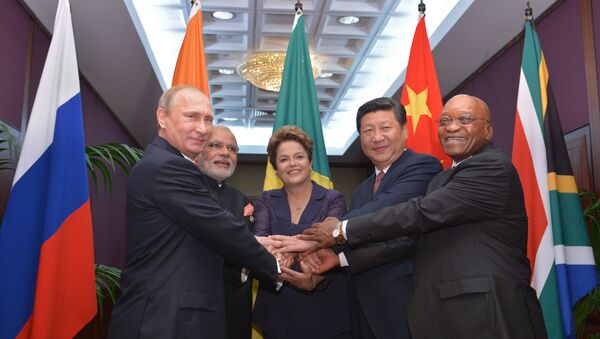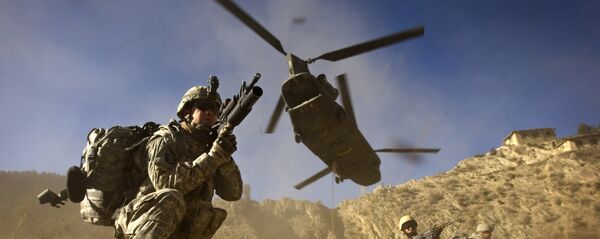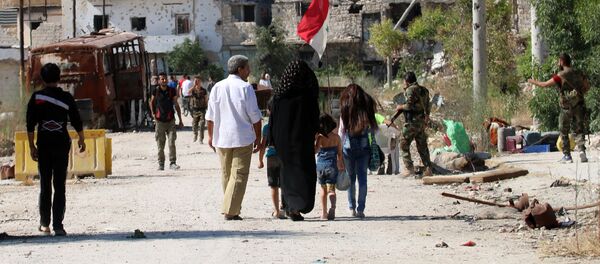Speaking at the Aspen Security Forum last Thursday, Clapper was asked to comment on the Democratic Party's claim that Russian hackers connected to the Kremlin had broken into DNC servers to reveal the party's collusion against presidential hopeful Bernie Sanders. The official said that "we are not quite ready yet to make a call on attribution," adding that he was surprised by the "hyperventilation" in the US media over Russia's alleged involvement in the hack.
Nevertheless, it seems the intelligence chief couldn't help himself in taking a shot at the Russian president, suggesting he was "kind of a throwback – not to the Communist era but more a throwback to the czar era." According to Clapper, Vladimir Putin "very much wants to be seen and considered as a leader of a great power, a co-equal of the United States."
Commenting on Mr. Clapper's remarks, PolitRussia contributor Tatyana Pushkova wrote that understanding the nature of the kind of accusation he's making requires a basic understanding of what's behind the words 'great power' and 'superpower' in their use as a term of abuse against Russia.
Pushkova noted that over the last decade, academics and politicians in Russia and abroad have engaged in regular debates as to 'what kind of power' Russia is. Some believe that the end of the Cold War and the collapse of the Soviet Union resulted in Russia losing its ability to have any significant influence on global processes for decades to come.
"Others," Pushkova suggested, "taking note of some of the obvious successes Russia has had in the 21st century, have emphasized its growing power, and consequently, its status."
"Others still stress that the contemporary world order does not allow for the existence of superpowers; the United States, according to these analysts, has lost its superpower status over the last decade, and the most that can be spoken of today is the existence of several 'poles' of power across the world."
"For fairness sake," the journalist noted, "it's worth pointing out that by all indications, Russia has a right to stake a claim to a far greater role than mere 'regional power' status; it has the resource potential, a geography of interests, and the corresponding international status, provided by its membership in the UN Security Council, and its membership in the nuclear club."
Pushkova noted that when it comes to 'hard' power, here too Russia is a significant force, its military strength ranking second only to that of the United States, according to the Global Firepower Index.
Russia's 'soft' power too is nothing to shake a stick at either, the journalist suggested, pointing to organizations such as RT, which has pejoratively been called 'the most important element of Putin's propaganda machine'.
"This is not a coincidence," the journalist noted. "Thanks to its information policy, RT, which offers access to an alternative point of view, is among the top five most popular international news channels in the United States, according to comScore. In 2016, over 8 million viewers tune in to RT each week."
Effectively, "Russia's the combined 'soft power' undoubtedly gives it a position of global leadership, through its involvement in the search for solutions to global problems, through various cooperation programs and an extensive diplomatic representation. Russian diplomacy has contributed significantly to the development of the BRICS group of countries, to the strengthening of the Shanghai Cooperation Organization and International Atomic Energy Agency mechanisms, and to Syria's chemical disarmament in 2013…[Russia has also made] a tremendous contribution in the fight against terrorism."
However, the journalist also emphasized that when it comes to defending Russia's national interests, Moscow "has no need to pretend to be something it is not, or to try to negotiate with the United States 'as co-equals'. Our country has long had another strategy in mind: we cooperate with others if and when our partners are ready to cooperate on an equal footing; otherwise, we pursue our own policy, aimed at attaining the results needed by our country."
"All this has been confirmed by the Russian president in his speeches. [During] the St. Petersburg International Economic Forum in June, Vladimir Putin expressed his readiness to cooperate with the United States, but with the caveat that Russia 'is not interested in anyone else telling it what to do'."
"As to the question of Russia's 'great power status', here too Moscow has explained its position a long time ago," Pushkova noted, referring to Putin's remarks in an interview with Bild earlier this year. In that interview, the Russian president bluntly stated that "Russia does not claim the role of a superpower. It is very expensive and useless."
Ultimately, the journalist wrote, "our country's goal, in collaboration with our partners, is to build a new world order of equals, where no one will dictate their terms from a position of strength, suppress or impose decisions favorable for themselves on others. And in the framework of such a strategy, any attempt to become a superpower, especially one like the United States, is out of the question." And that, Pushkova suggested, may be what concerns US policymakers the most.





